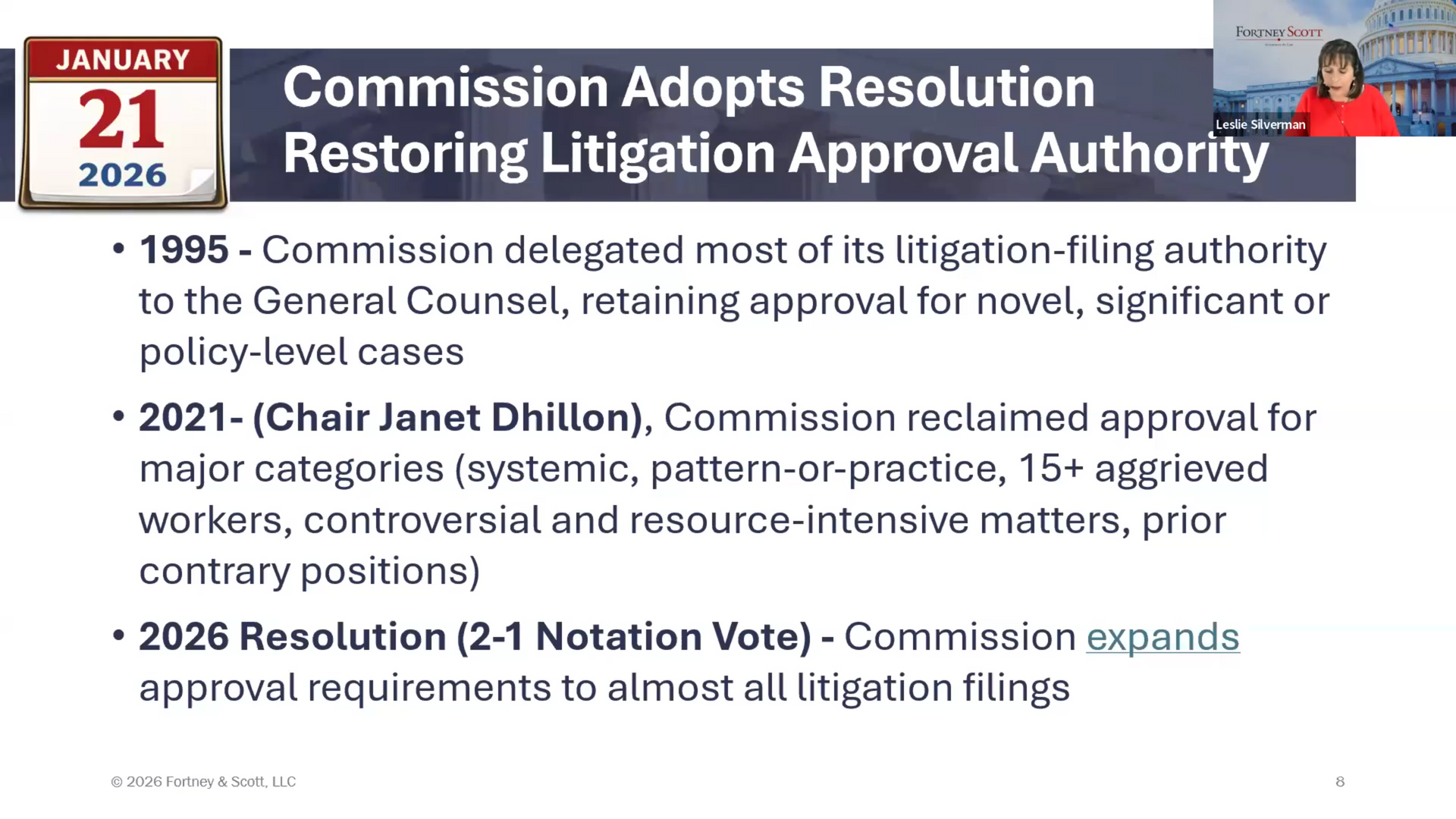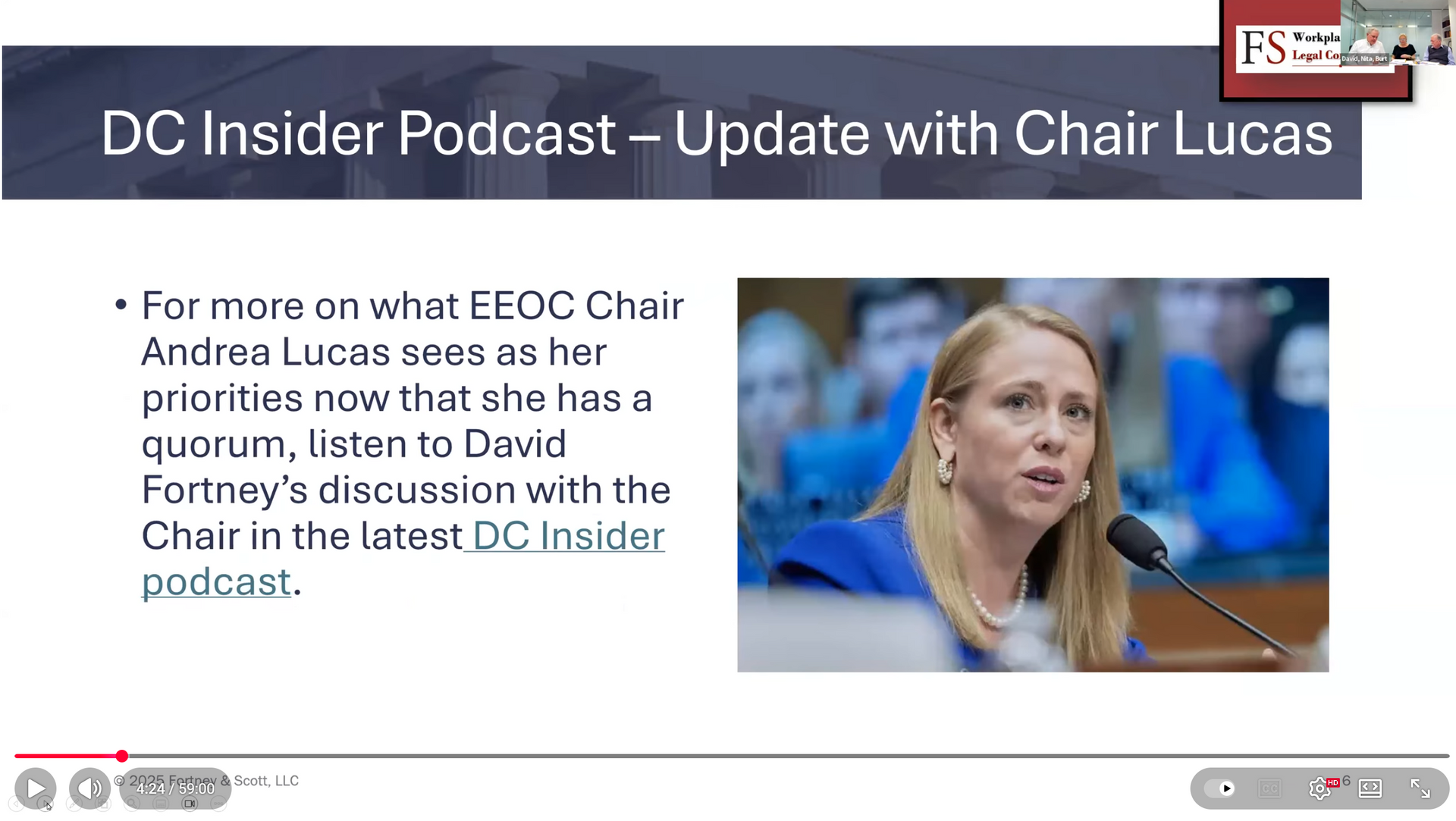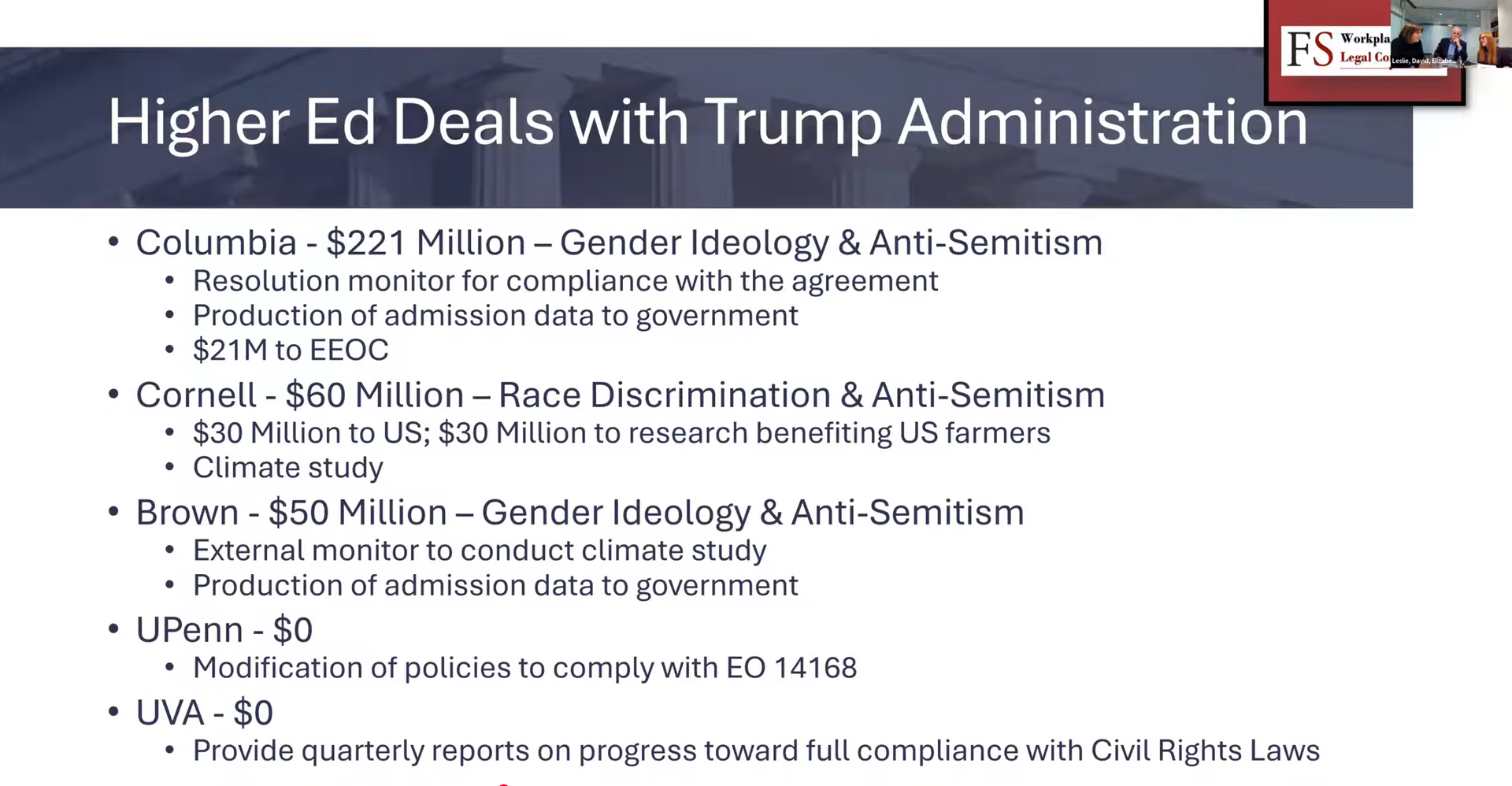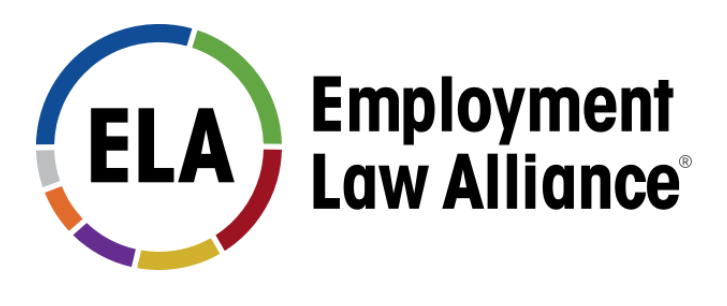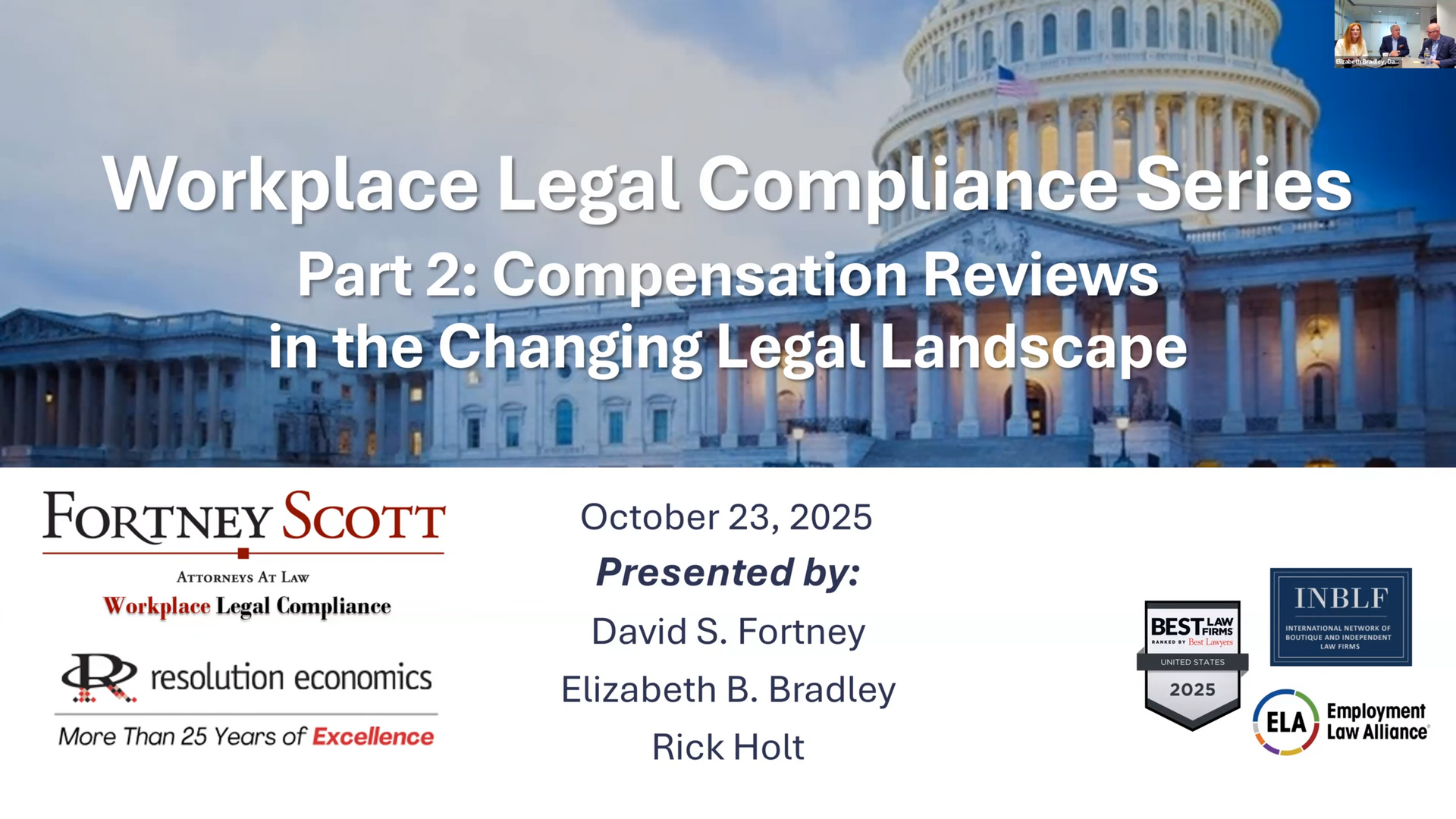EEOC’s First Meeting Under the Biden Administration on “Workplace Civil Rights Implications of the COVID-19 Pandemic”
On April 28, 2021, the Equal Employment Opportunity Commission (“EEOC”) held the first Commission meeting under the Biden Administration, a public hearing on “Workplace Civil Rights Implications of the COVID-19 Pandemic.” The primary focus of the hearing was on the pandemic’s devastating impact on the U.S. workforce. Twelve panelists testified about pandemic-related losses and amplified inequities suffered by people of color, Native Americans, people with disabilities, immigrants, older workers, and women, and by specific segments of the workforce, such as essential front-line and migrant workers. The panel also included the employer’s perspective and discussed the pandemic-related issues that employers are currently grappling with and are looking to the Commission for guidance.
The key takeaways from the wide-ranging hearing are:
- EEOC’s priority issues have been displaced and delayed. The pandemic’s disproportionate impact on frontline workers and protected groups should be the primary driver of EEOC guidance, outreach, and enforcement priorities during the Biden Administration.
- Employers should anticipate an increase in charges and Commission focus on hiring, accommodation, harassment, retaliation, and compensation disparity, especially as these issues affect workers most severely impacted by the pandemic.
- Employers need the Commission to move quickly to issue new COVID-19 Vaccine-related guidance that helps clarify when and how employers can lawfully require vaccinations or offer vaccination incentives. In particular, EEOC would end confusion and boost vaccination rates by making clear that in most instances the ADA’s wellness provisions do not prevent an employer from offering a range of vaccination incentives, including financial incentives, and by providing further guidance on this issue.
While the Republican Commissioners continue to hold the majority of the Commission until mid-2022, employers should be on notice that the Commission could forge new ground beyond COVID-19 issues. Commissioner Sonderling and Commissioner Lucas expressed an interest in taking on challenging issues such as scrutinizing the role of AI during employee selection and Commissioner Lucas raised the possibility of revising Older Worker Benefit Protection Act regulations to provide greater transparency to older workers laid off during a RIF.
A more complete review of the issues raised during the hearing
is available here.

